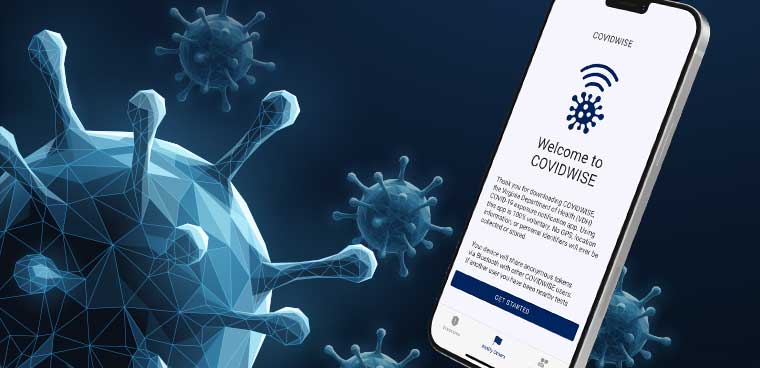The First U.S. Contact-Tracing App to Use the Apple-Google System Is Finally Here | Josephine Wolff in Slate
In Slate, Fletcher Assistant Professor of Cybersecurity Policy Josephine Wolff discusses Virginia’s release of the Covidwise app, an exposure notification API developed by Apple and Google to track when smartphones running Android or iOS came into close contact with one another without revealing unnecessary information about users’ locations or activities.
Whether a significant number of people will actually download and use the Virginia app remains to be seen. It’s also not clear how many other states will follow Virginia’s lead in using the Apple-Google API to develop apps since there are no current plans for a nationwide government-sponsored notification app. The Virginia app requires a six-digit PIN issued by the state Department of Health to confirm positive test results and therefore will be of very limited use to non-Virginia residents, though there has been some discussion of a shared national key server to enable different states’ apps to work together.
States have made attempts to track exposure without using the Apple-Google framework. Utah, for instance, released an app in May that relied on both Bluetooth and GPS data instead of the Apple-Google API (which, again, relies exclusively on Bluetooth data). In addition to being able to track users’ location data, the Utah app also enabled public health workers to access data about exposed users so that those officials could then contact people directly, something the Apple-Google set-up is designed to avoid by alerting exposed individuals through their phones instead of via government workers. Also in May, the Care19 app built for North Dakota—which, like the Utah app, collected location data instead of relying on the Apple-Google API—was found to violate its own privacy policy by sending user data to marketing company Foursquare. That problem was fixed and two more states, South Dakota and Wyoming, signed on to use the app. But by the end of June, only 4 percent of North Dakotans were using Care19.
Josephine Wolff, Slate

